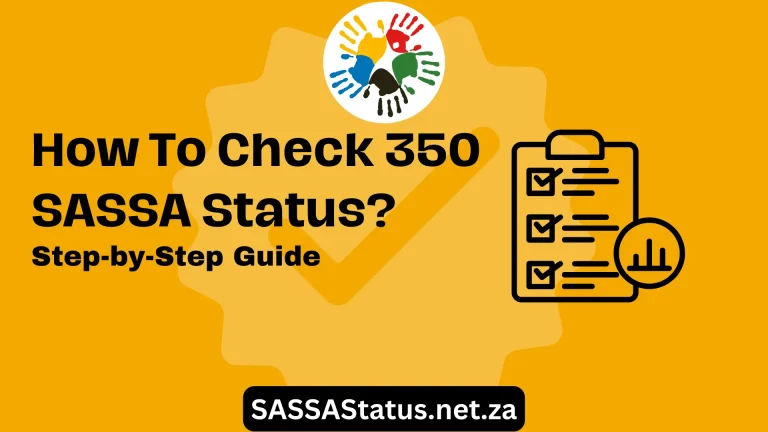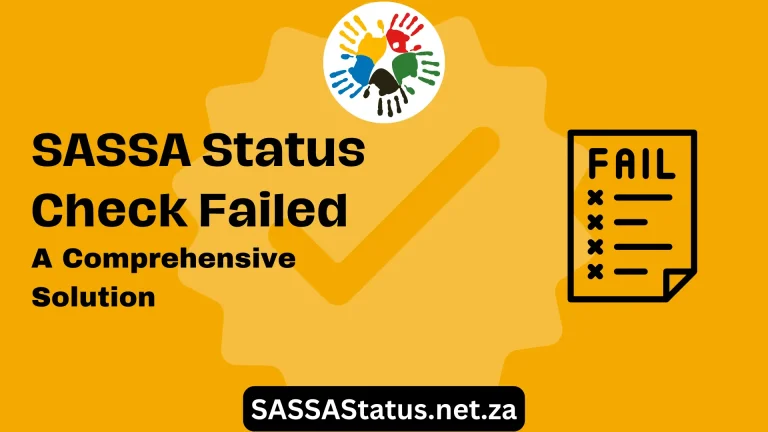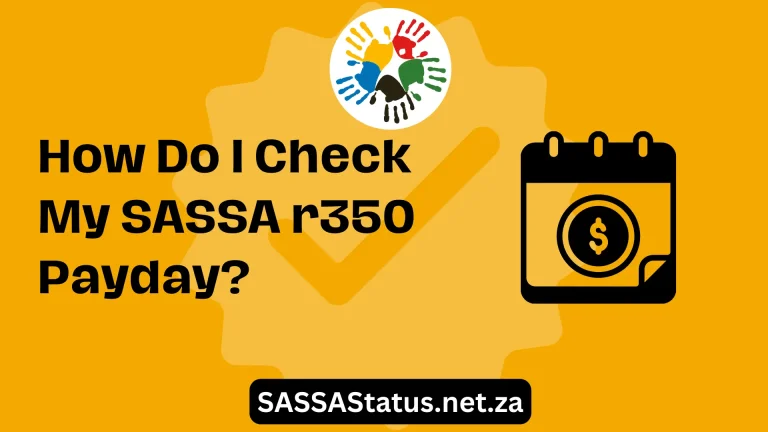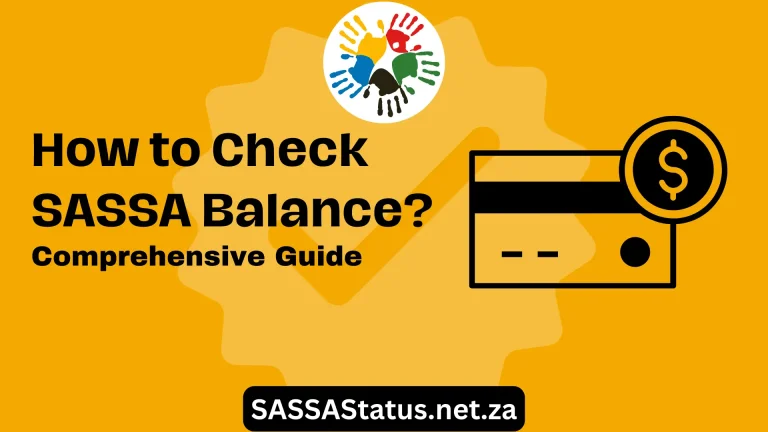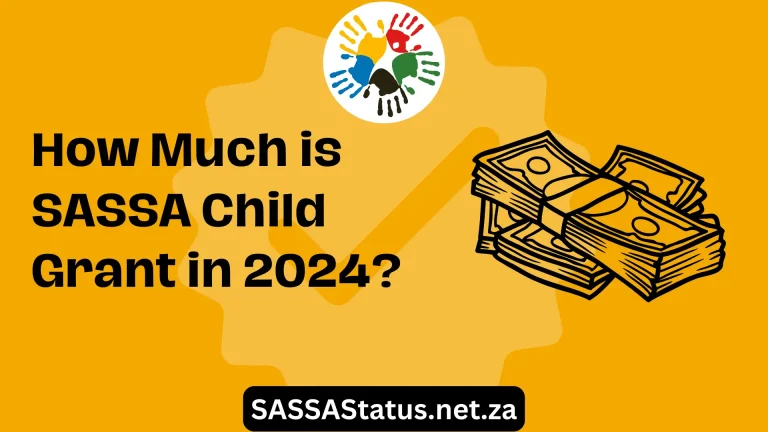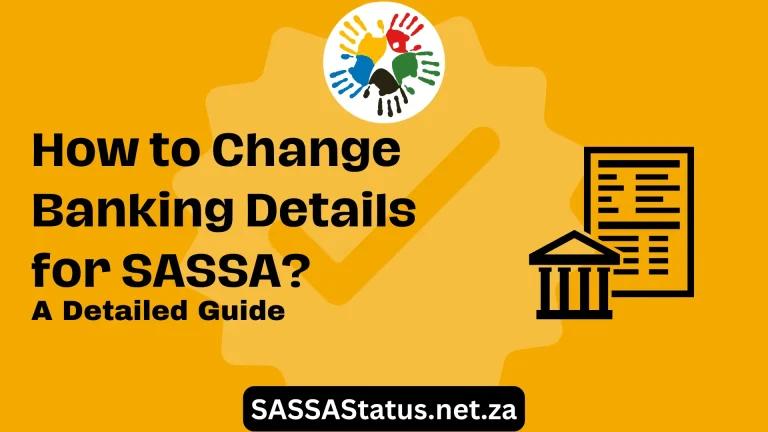How Much Must You Earn to Qualify for SASSA Grant?
Learn how eligibility for SASSA grants is determined through financial criteria, applicable to both permanent recipients and temporary applicants. To qualify, your income and asset thresholds must meet specified criteria set by the SASSA Means Test, ensuring fair access to support.
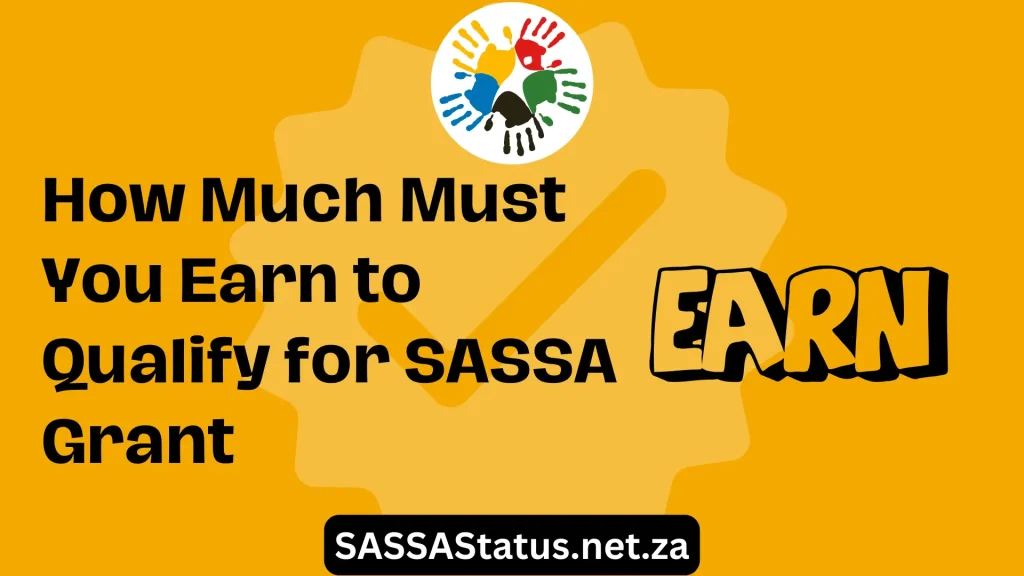
To be eligible for a SASSA Grant, your income must be below a certain amount. Your assets and income are measured against specific limits set by the SASSA Means Test. This test looks at how much money you earn each month and year, as well as any assets you have in your bank account or your name.
What is the SASSA Means Test?
To simplify the comprehension of the SASSA Status Check procedure, this guide aims to illuminate the intricacies of the Means Test. It elucidates how this assessment determines suitability for beneficiaries facing inadequate means to sustain themselves and their families. Delve into the details of how the SASSA Means Test impacts eligibility.
Qualifying Criteria
The SASSA Means Test is the process through which the South African Government determines whether individuals qualify for financial assistance. To be eligible for SASSA social grants or the SASSA SRD R350 grant, applicants must meet specific criteria.
Income Assessment
Your income is a crucial factor in determining eligibility. If your financial situation falls within the specified criteria, you may qualify for the grant. However, if your income exceeds the threshold set by SASSA, you may not be eligible for assistance.
Asset Evaluation
In addition to income, the government evaluates your total assets to assess eligibility. It’s important to provide accurate information about your assets during the application process.
Your bank balance can impact your eligibility. Maintaining a low bank account balance can increase your chances of qualifying for SASSA payments and prevent potential issues.
Ongoing Eligibility
It involves regular reviews and reporting changes.
Regular Reviews
Eligibility for SASSA grants is not a one-time assessment. Your financial situation is periodically reviewed to ensure that the assistance reaches those who need it the most. After you start receiving the grant, your financial status will be reviewed at regular intervals, typically every month.
Reporting Changes
It’s crucial to report any changes in your financial circumstances promptly. If your income or assets change during the period you receive the grant, you must notify SASSA. Failure to report changes may affect your eligibility for assistance.
SASSA conducts regular reviews of new applicants’ applications and those already approved as SASSA beneficiaries. This ensures that every beneficiary remains eligible, and if they no longer qualify, resources are redirected to support other citizens in need.
Prioritizing the Needy
The primary purpose of the SASSA Means Test is to prioritize assistance for those who genuinely need it. By evaluating applicants’ financial situations, the government can target support for individuals and families facing economic hardships.
This ensures that limited funds are directed where they can have the most significant impact, assisting those who need it the most.
Preventing Misuse
Misuse of social grants is a concern addressed by the means test. For married applicants, combined incomes are considered to maintain the integrity of the system. This approach helps prevent ineligible individuals from receiving funds and ensures that financial aid reaches those who genuinely require it.
The SASSA Means Test applies to all social grants, including Disability Grant, Older Person Grants, Child Support Grants, Foster Child Grant, Care Dependency Grant, War Veterans Grant, and Grant In Aid applicants. You should stay informed about the criteria to avoid disruptions in your grant payments and ensure you receive the support you need from SASSA.
How Much Must You Earn to Qualify for SASSA Grant?
To qualify for a SASSA grant, you must meet specific criteria set by SASSA. This includes highlighting your monthly income or total assets to determine eligibility.
Each SASSA grant, such as Child Support, Care Dependency, Old Age, Grant-in-Aid, Disability, Foster Child, and War Veterans, has different income criteria. These criteria are assessed by SASSA through a means test during the approval process.
It’s important to note that there are income limits for each grant, both on a monthly and annual basis. These limits vary depending on the type of grant you are applying for. Meeting these income criteria is crucial for a successful grant approval.
Monthly and Annual Income for SASSA Grants
It’s important to know that for all SASSA grants, your income must not exceed the specified limits. This applies to both permanent and temporary grants. Exceeding these income limits can result in your grant application being rejected.
SASSA Old Age Grant
If the caregiver or guardian of an elderly person earns R96,840 or less annually, they can apply for an old-age grant on behalf of the elderly person. If two people or a married couple are caring for the elderly person, their combined annual income should not exceed R193,680, or R16,140 per month.
SASSA in-Aid Grant
To qualify for an In-aid Grant, the applicant’s monthly income should not exceed R8,070. If the applicants are married couples, their combined monthly income should not exceed R193,680.
SASSA Disability Grant
To qualify for a Disability Grant, the disabled person’s monthly income should not exceed R16,140. If the applicants are married couples, their annual combined assets value should not exceed R193,680.
SASSA Foster Child Grant
The SASSA Foster Child Grant stands out among the various grants offered, as it does not have any specific income threshold requirements, whether monthly or annual. The approval process for this grant is contingent upon possessing a valid legal court order along with complete identification documents.
It’s essential to note that only the caregiver responsible for supporting the foster child is eligible to apply for this grant. Other individuals are not permitted to apply. To qualify, you must demonstrate that you are the sole guardian of the foster child.
SASSA Child Support Grant
The eligibility criteria for the Child Support Grant are based on the income of the child’s guardian. For a single, unmarried, or divorced guardian, their monthly income must not exceed R4000. If the child has two guardians who are married or the child’s parents, their combined monthly income should not exceed R8000.
SASSA Care Dependency Grant
The Care Dependency Grant is intended for South African children over 18 years of age. The parents or guardians caring for such a child should have a monthly income lower than R20,800. If the child’s parents are married or legally coupled, their combined monthly income must not exceed R41,600.
SASSA War Veterans Grant
The SASSA War Veterans Grant is available to individuals who have served as War Veterans in the South African Armed Forces. To qualify for this grant, the applicant must meet certain income criteria. If the applicant is single, they must be receiving no more than R86,280 annually. For married couples, the combined income should not exceed R172,560 per year.
It’s important to note that meeting the income threshold alone is not sufficient. Applicants must have a documented history of service as War Veterans in the South African Armed Forces. Failure to meet this requirement will result in rejection, regardless of whether the applicant applies through the SASSA online application or any other means.
Income Limits for SASSA Grants
To qualify for a SASSA grant, it’s crucial to understand the income limits for each grant type. Ensuring that your income falls within the specified maximum limits for the grant you’re applying for is essential. This criterion applies to both single individuals and married couples, so it’s important to review this information before beginning the SASSA online application process.
Clarifying how much you must earn to qualify for a SASSA grant is key. Once you have this information, it’s important to ensure that your earnings remain below the specified limit so that you can receive SASSA funds every month.
Conclusion
To qualify for a SASSA grant, you must meet specific income criteria set by SASSA. These criteria vary depending on the type of grant you are applying for. It’s important to ensure that your income falls within the specified limits for the grant you’re interested in to increase your chances of approval. Additionally, providing accurate and complete documentation to support your application is essential.
